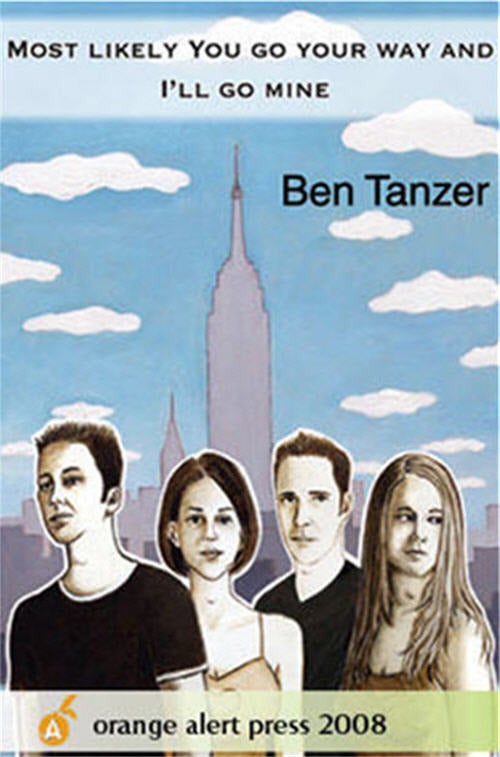
If you spend some time on the literary interwebs, two words that begin to appear repeatedly are "Molly Gaudry." Yes, from what I can figure out she is a real person and has a real (novella) book from Mudluscious called WE TAKE ME APART. Most recently, I've been enjoying her work over at Big Other where she convinces writers to submit embarrassing childhood photos. Quite impressive really.
For the five best things she's read recently, Molly chose five introductory paragraphs, at random, from an anthology she's editing for Flatmancrooked tentatively titled Tell: An Anthology of Expository Narratives (due out fall 2010) and will feature over 50 writers. Plus, here's a bonus cookie recipe she said was good.
1) Aimee Bender's "Appleless," from The Fairy Tale Review
I once knew a girl who wouldn't eat apples. She wove her walking around groves and orchards. She didn't even like to look at them. They're all mealy, she said. Or else too cheeky, too bloomed. No, she stated again, in case we had not heard her, our laps brimming with Granny Smiths and Red Deliciouses. With Galas and Spartans and yellow Golden Globes. But we had heard her, from the very first; we just couldn't help offering again. Please, we pleaded, eat. Cracking our bites loudly, exposing the dripping wet white inside.
2) Blake Butler's "The Gown from Mother's Stomach," from Ninth Letter and Scorch Atlas (Featherproof Books)
The mother ate thread and lace for four weeks so that her daughter would have a gown. She was tired of not being able to provide her daughter with the things many other girls took for granted. Their family was poor and the mother's fingers ached with arthritis so she couldn't bring herself to sew. Instead she chewed the bed sheets until they were soft enough to swallow. She bit the curtains and gnawed the pillow. With one wet finger she swiped the floor for dust. God will knit it in my womb like he did you, she murmured. When you wear it you will blind the world.
3) Gary Lutz's "The Preventer of Sorrows," from Stories in the Worst Way (Calamari Press)
At some point I played up to myself long enough to be living in a room that was scarcely part of the house it was tacked onto. Mornings, the open space between the bottom of the door and the carpet admitted a scalene wedge of light from more substantial regions of the house. Things besides light could have got in. It was my fault for not having insisted on a door that locked.
4) Michael Martone's "Rumination"
I think of him thinking about his cows. I never even knew he was a dairyman. At the Starbucks in the Student Union where I worked he’d ask me about the steamed milk—real milk, right?—in the latte. I think of that now. He’d nurse the drink all day, staring off into space, the space so thick I could almost see that electromagnetic soup of digital bleats bawling from the laptops, the cell phones, the other students all around him were nudging and pawing, grazing through their email, their texts. I drifted over to him, started talking. He bought me a macchiato stained with milk and never let on he left a dairy farm to come to school. Though once early on, now that I think about it, he told me one could major in ice cream if one wanted to. I majored in numbers. Made ends meet. Thinking about it now, there were infinite silences between us like the silences between the bits of the binary alphabets herding around us in the ether. He didn’t say much at all, but that is the nature of farm boys, I guessed, or at least the ones I met back then, weaned in the vacuums of all those empty acres out there.
5) Stuart Dybek's "Fiction," from Tin House
Through a rift in the mist, a moon the shade of water-stained silk. A night to begin, to begin again. Someone whistling a tune impossible to find on a piano, an elusive melody that resides, perhaps, in the spaces between the keys where there once seemed to be only silence. He wants to tell her a story without telling a story. One in which the silence between words is necessary in order to make audible the faint whistle of her breath as he enters her.
More after the jump...






































